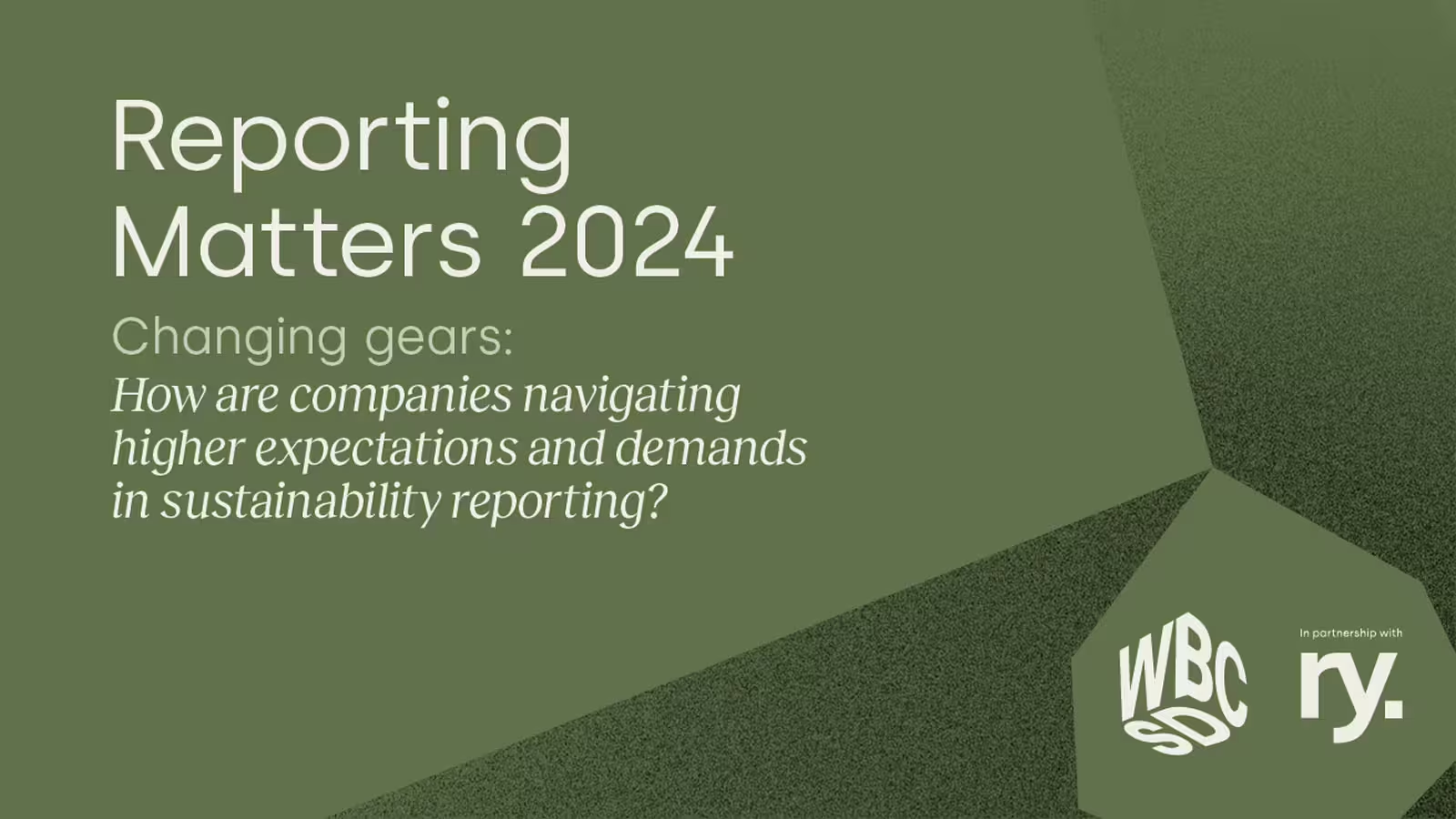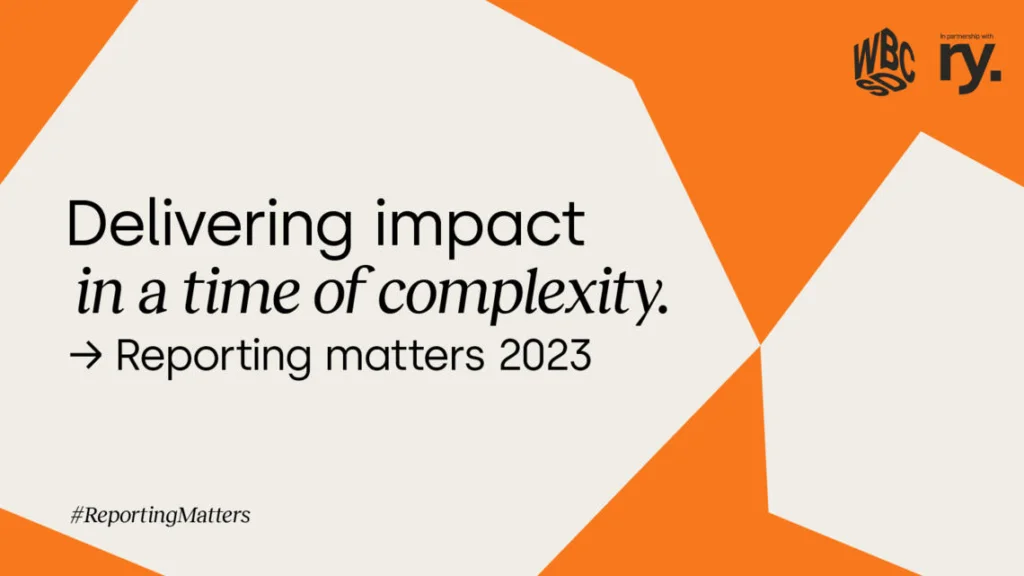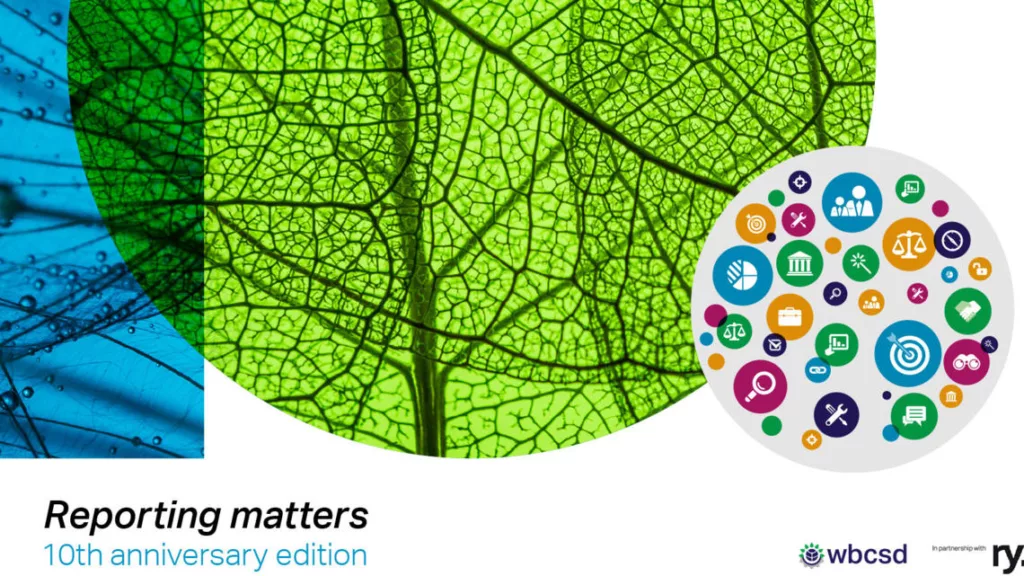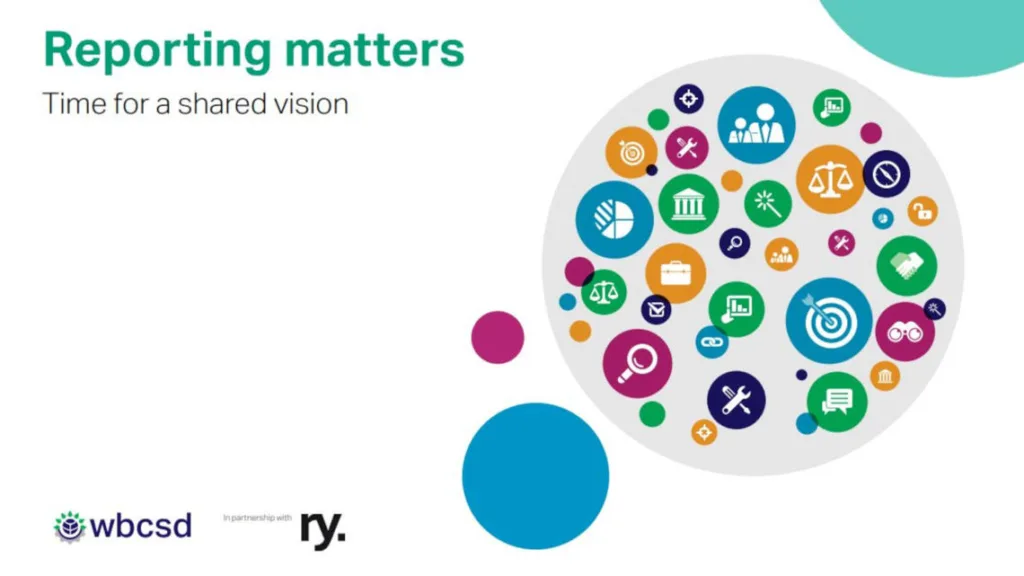Engage with the report in an innovative way by exploring our interactive format (via Readymag) for a dynamic look at the findings, designed to enhance accessibility and understanding. Dive into an interactive layout that allows you to explore insights, data, and case studies directly within the digital report.
Interactive experiencePrefer the full PDF? Download the report for an in-depth, downloadable guide that includes every section, analysis, and recommended practice.
Download reportIn an era where transparency, accountability, and impact are non-negotiable, the 12th edition of Reporting matters provides essential insights to help companies navigate rising expectations in sustainability reporting. Developed by WBCSD in partnership with Radley Yeldar, this year’s report dives into how businesses are adapting to meet complex regulatory requirements and evolving stakeholder expectations.
This year’s report zooms in on how companies are changing gears for a new era of sustainability reporting that looks to present higher expectations and demands in corporate disclosures. It includes perspectives, experiences and voices from a diverse group of leading businesses. With insights gathered from 181 companies’ reports, Reporting Matters 2024 features aggregate, anonymized results, consolidates key trends and developments as well as showcases examples of good practice and provides recommendations for improvement features aggregate, anonymized results, consolidates key trends and developments as well as showcases examples of good practice and provides recommendations for improvement
Here’s a preview what you’ll find:
- Introduction to 2024 theme and perspectives
- A welcome message from John Revess (WBCSD) and Louise Ayling (Radley Yeldar) highlights the shifting role of corporate sustainability reporting as companies face increasing pressures to integrate sustainability into core strategies.
- An engaging conversation with Simon Rawson (ShareAction) explores the evolution of investor expectations and the importance of transparency and impact in corporate disclosures.
- Spotlights on key trends
- Double materiality: A substantial shift towards double materiality, with 77% of reports now addressing both financial and non-financial impacts, showcasing how companies are broadening their understanding of material risks and opportunities.
- Frameworks and standards: This year marks a notable increase in adherence to frameworks such as TCFD, ISSB, and CSRD, underscoring the trend towards standardized sustainability disclosures.
- External assurance: The vast majority of reports have external assurance for sustainability data. One fifth provides either a reasonable or a combined level of assurance.
- Sustainability governance: Reporting on board-level sustainability responsibilities has grown, with 73% of companies reporting on executive compensation linked to sustainability performance.
- Deep dive into the Reporting matters framework
- Principles: Analyzes foundational reporting practices, including completeness, materiality, balance, and stakeholder engagement, to provide companies with a checklist of essentials for credible reporting.
- Content: Focuses on strategy, partnerships, and the integration of sustainability goals, helping companies align disclosures with business priorities and stakeholder needs.
- Effectiveness: Evaluates how companies make their reports accessible and engaging for various audiences, ensuring that reports not only inform but also inspire action and positive impact.
- Good practice examples
- This year’s report features 35 case studies from global companies, illustrating effective approaches across all aspects of reporting. These include, for example, detailed insights into double materiality, governance integration, and the Sustainable Development Goals (SDGs).
- Perspectives from the Reporting matters Advisory Group
- Reporting Matters 2024 incorporates recommendations from the newly established Advisory Group to provide additional insights and shape the report’s focus on evolving industry standards.
- Strategic Q&A discussions
- The report features strategic discussions from leading practitioners with helpful advice on how companies can effectively implement double materiality, innovate internally for greater sustainability integration across teams and functions, and continue to effectively engage different audiences on this journey, and use the SDGs in a meaningful way in their reporting, helping to track progress on global sustainability commitments and fostering accountability.




